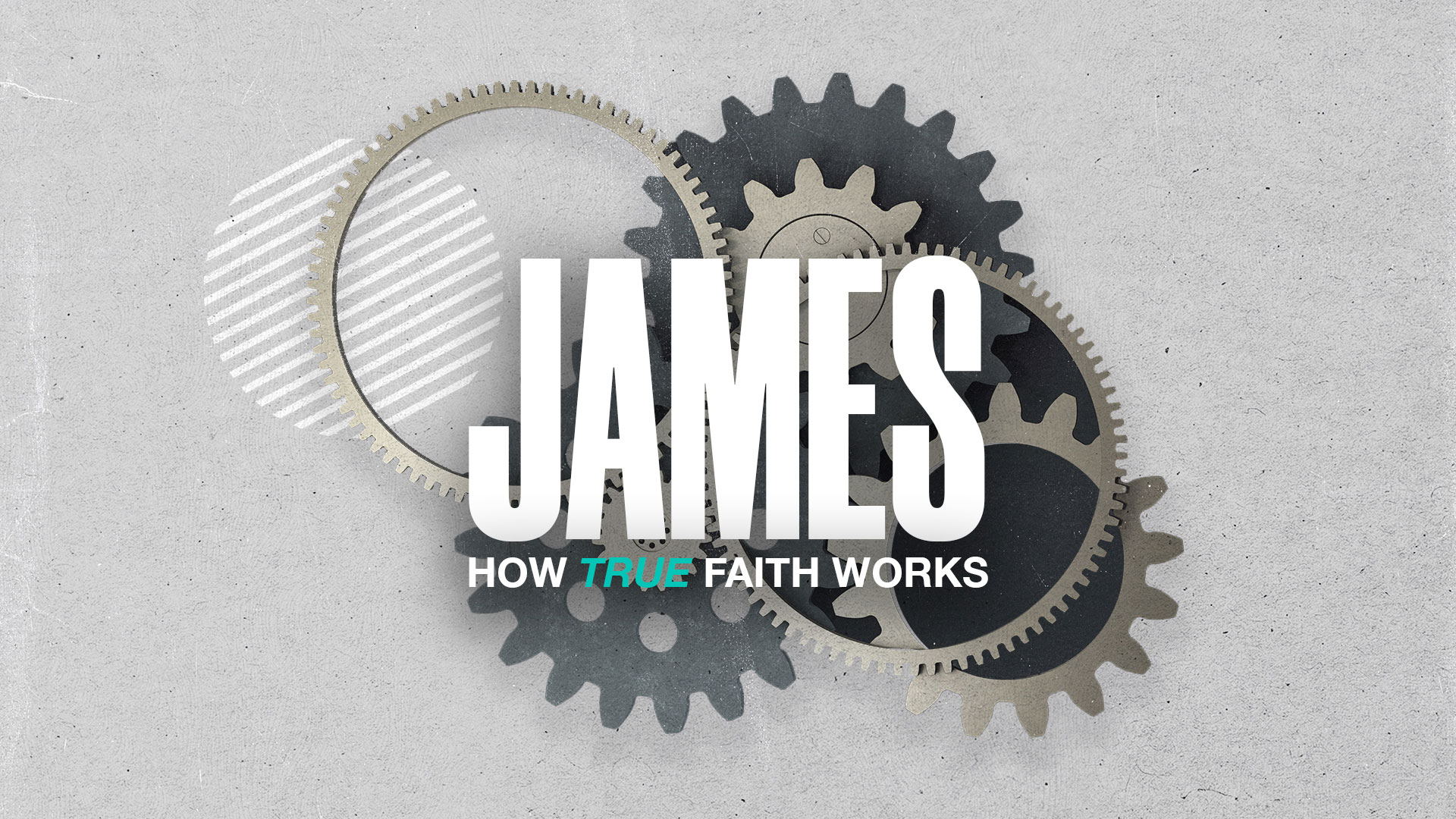How Mercy Wins, James 2:1-13
Discussion & Practice
We’ve completed chapter 1, entering chapter 2, and we’re on a journey with James. It’s an adventure, discovering what genuine faith is and how it works. Everywhere we look, we see new life is generated inside of us. That new life will show itself as chapter 2 will really emphasize.

Something on the inside is manifested, it comes out. “Being” leads to “doing.” James is bringing together the internal and external picture of salvation. They go together. It’s something that completely overhauls your life. It affects your stamina, your desires, the words you say, your thinking and self-reflection, your compassion, and holiness.
In Mere Christianity, C. S. Lewis writes, “If conversion to Christianity makes no improvement in a man's outward actions – if he continues to be just a snobbish or spiteful or envious or ambitious as he was before – then I think we must suspect that his 'conversion' was largely imaginary; and after one's original conversion, every time one thinks one has made an advance, that is the test to apply. Fine feelings, new insights, greater interest in 'religion' mean nothing unless they make our actual behavior better; just as in an illness 'feeling better' is not much good if the thermometer shows that your temperature is still going up…For mere improvement is not redemption, though redemption always improves people even here and now and will, in the end, improve them to a degree we cannot yet imagine. God became man to turn creatures into sons: not simply to produce better men of the old kind but to produce a new kind of man. It is not like teaching a horse to jump better and better but like turning a horse into a winged creature.”
That’s similar to what James has been saying. You’re deluded. You don’t just get a new manager, you get new machinery.
James is teaching us how the gospel works. It reorients everything about your life. There are some things that can no longer coexist with this new relationship and new life. One of those things is partiality, prejudice or discrimination. It’s something very much in us to do.


This is how it reads. These two do not go together. You cannot hold faith in the Lord Jesus Christ with partialities. That word is plural, meaning any kind of unhealthy discrimination that hurts people and serves you. You can’t possess or have faith and partialities too.
This word for partialities literally means receiving the face. You look at the outward things and make judgments. Right off the bat, James says a relationship with Jesus Christ changes the way you see faces.
He uses the church example of someone coming in fancy clothes vs someone coming in with “shabby” clothes. When these folks come in, you “see” him and then you “say” and then you “do.”
The poor guy ends up away or below. You accommodate the one and demean the other.
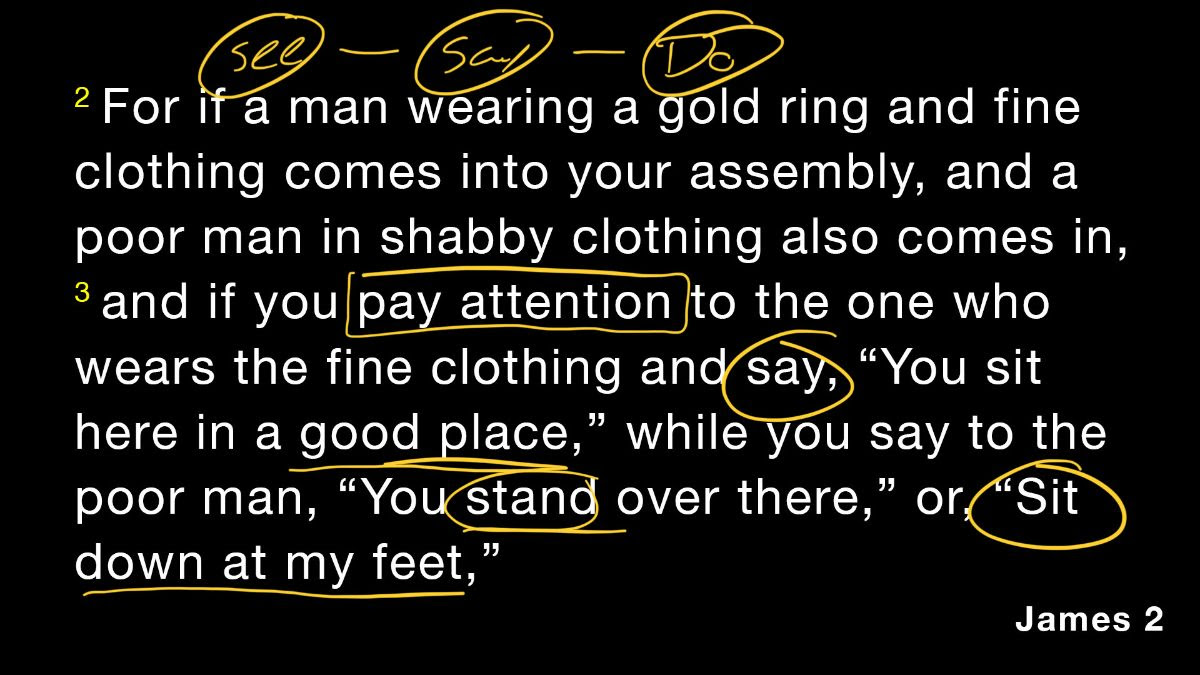
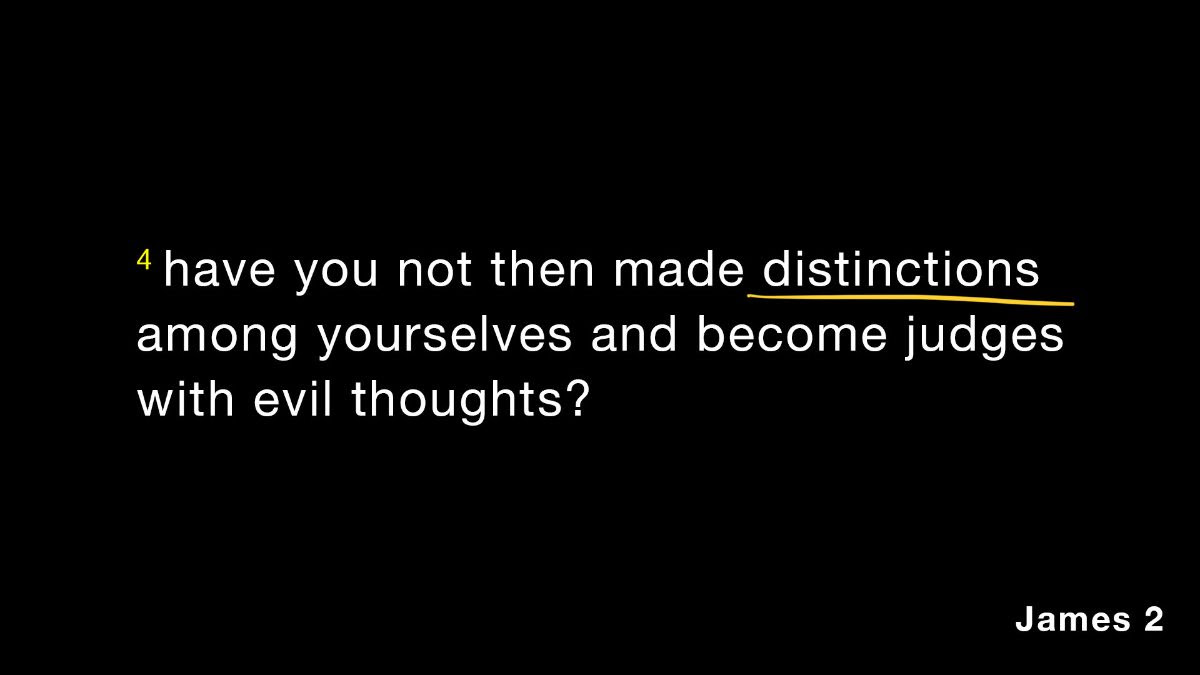
Remember in the Jesus Revolution movie when the old folks and the hippies were divided in the church? Discriminating is the same word as being divided in yourself. If you’re divided in yourself, you’ll be divided as a group. You can’t hold faith and be divided in this way.
Then you become dirty judges. The judges of that day could easily be persuaded against the poor guy. There are a million ways to do this. The Jew and Gentile distinction was a big one. It could be money like in this passage. It could be education, looks, status, people who shop at Aldi. People who attend the second service, the lazy ones.
I was trying to think of a time when this has happened to me and I just can’t. There’s a song called signs that was written by a Canadian band. They have a chorus about walking into church and not being accepted. I remember being a kid growing up in the 70s and I had long hair. I remember that song haunting me and thinking I would have to cut my hair to get a job.
James is thinking about something different than what we’re dealing with in our culture with discrimination.
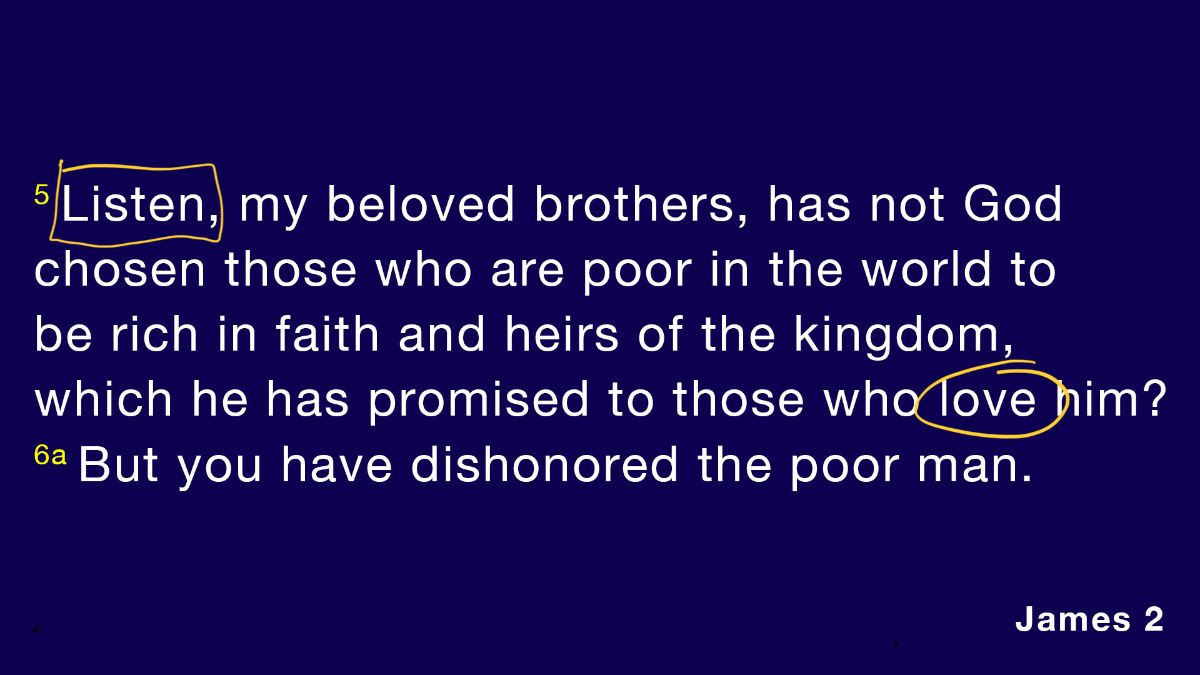
Remember in chapter 1 how we were told to be slow to speak and quick to listen? Some of us have been told to hate a certain kind of people from a young age. But James does something special for us. Three things. What we learn about God, what we learn about ourselves, and what Christ has done for us.
This is a prescription for how everything in our lives change, not just our discriminating hearts. When you hold the faith, this is how it impacts you. Partiality is the particular issue here, but it applies to everything.
The first thing that partiality does is undermines God’s choice. You reject people who God has accepted. You demean people God has lifted up. You can’t hold the faith and prejudices. The poor are very important to God and they hold a high place in his kingdom. They are heirs of the kingdom. They are wealthy in his eyes. And they love him. Think about all these things that the poor possesses. God has chosen them.
God is saying, you dismiss who I receive and bless. The gospel is the great equalizer. Acts 10:34 when Peter goes into the home of Cornelius the Gentile and says God is no respecter of positions.
Everyone is in the same boat with salvation. You have nothing to contribute. If you do this, you don’t know God or the gospel. You imagine there was something special about you that made God pick you. Maybe you were smarter than others or live a little better. That’s not how salvation works. If this is how you think, you’re at odds with God, at odds with the poor, at odds with your own faith experience, because when you were saved you had nothing. We’re all poor spiritually. It’s hard for the rich, because we all have to throw ourselves on God’s charity because we lack spiritual resources and come up short.
The first thing that happens when you come to Christ is your view of the world and people change, because the grace of God has shown on you in a way that shows you don’t have anything without him.
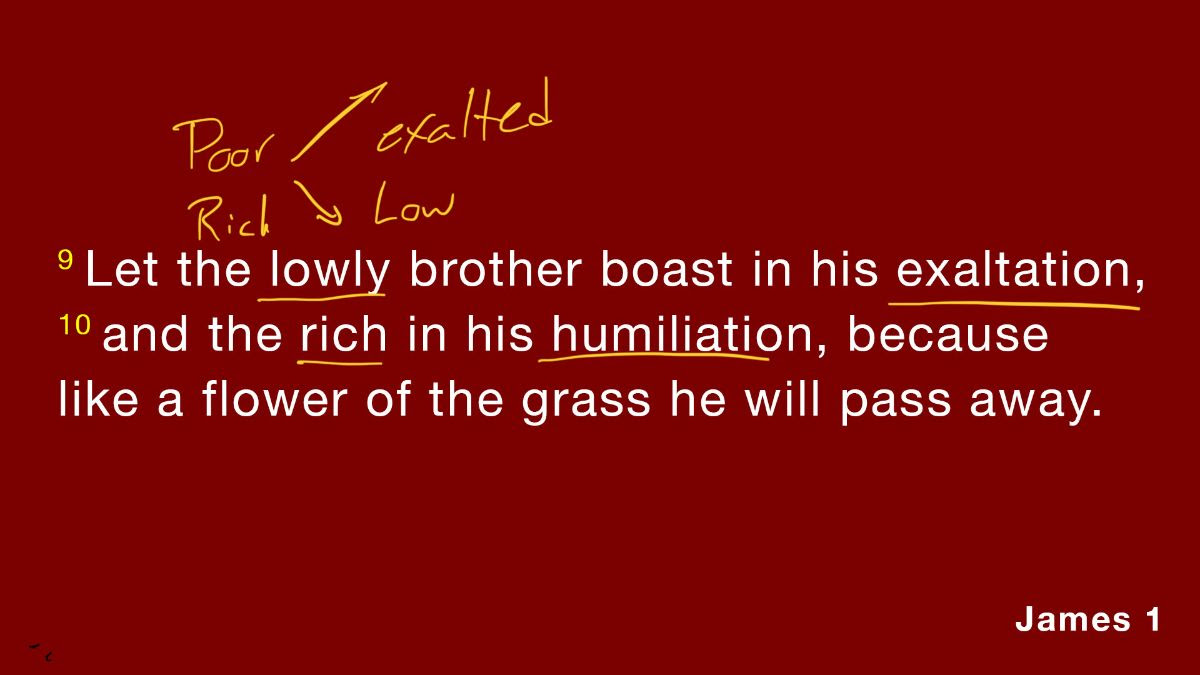
If you have a lot when you come to Christ, you will be humbled by what he offers you. If you have nothing when you come to Christ, you’re amazed to find you’re lifted up. If you’re arrogant and cocky, you’ll be brought lower. If you need to be lifted up, the gospel will do that. The gospel is our primary identity.
When we show partiality, we go against the gospel and the God who saved us.
The second thing that happens is that you align yourself.
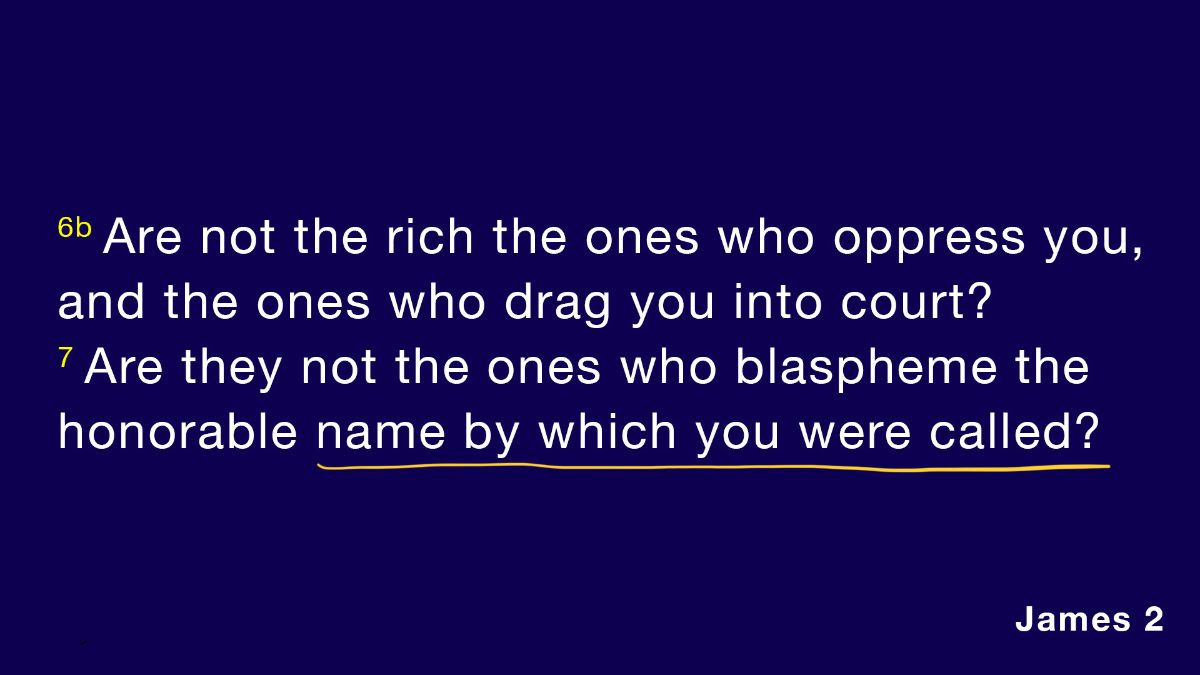
The rich devastate the poor. You’re aligning yourself with God’s enemies. Not only are you at odds with God and the poor he has lifted up, but you’re in alignment with the rich who oppress the poor. You’ve become like them.
The rich charge higher taxes, interest rates, foreclose, blaspheme God’s name. It’s completely out of character for you to act the way they do.
God has given the poor a high position. You’re not a low life and you don’t see people as low life’s.
Why would you favor the rich if you’re poor, even when they do those things to you? Because you’re hoping they’ll do something for you. When it comes to money or things or clout or status, we’re hoping that if we serve them just right, they’ll do something for us. So we end up exploiting the rich instead of the poor.
Gail and I recognize in our home when we see one using the other. Everyone is using everyone, because we’re trying to get something. If I could just have or get or know…James says you don’t know the gospel. The gospel is going to change how you see the rich and how you see yourself. I’m no longer living for what the rich have. This is something you’ll battle to your grave, not wanting what the rich have, or what others have. When you get saved and the gospel comes into your life, you stop wanting those things in the same way.
The gospel comes into your life and changes the way you see things. The rich are more needy when the gospel comes into their life. They realize nothing they have ultimately matters. The poor on the other hand are less needy, because they realize they don’t need anything that anyone else has. That’s what happens when the gospel comes into your life.
It’s absurd for James that anyone would treat anyone with discrimination. The rich need more and are oppressive, the poor need more and impress.
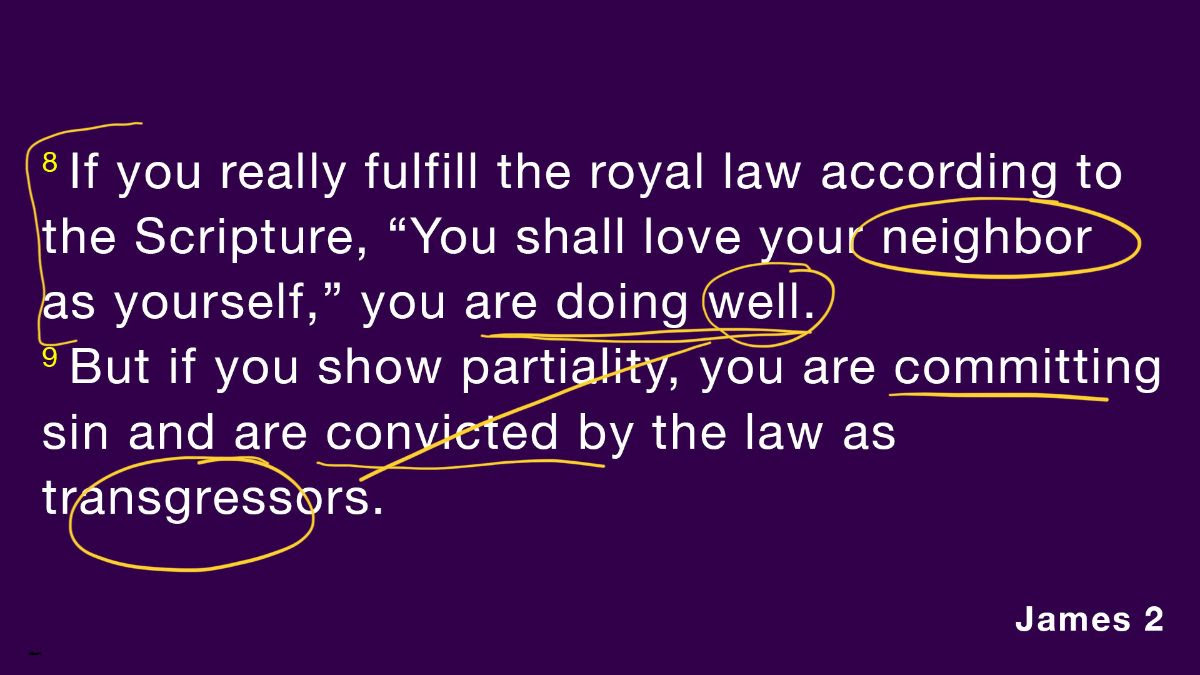
He’s quoting Leviticus 19 here. Everything there is about how you treat the poor and love your neighbor.
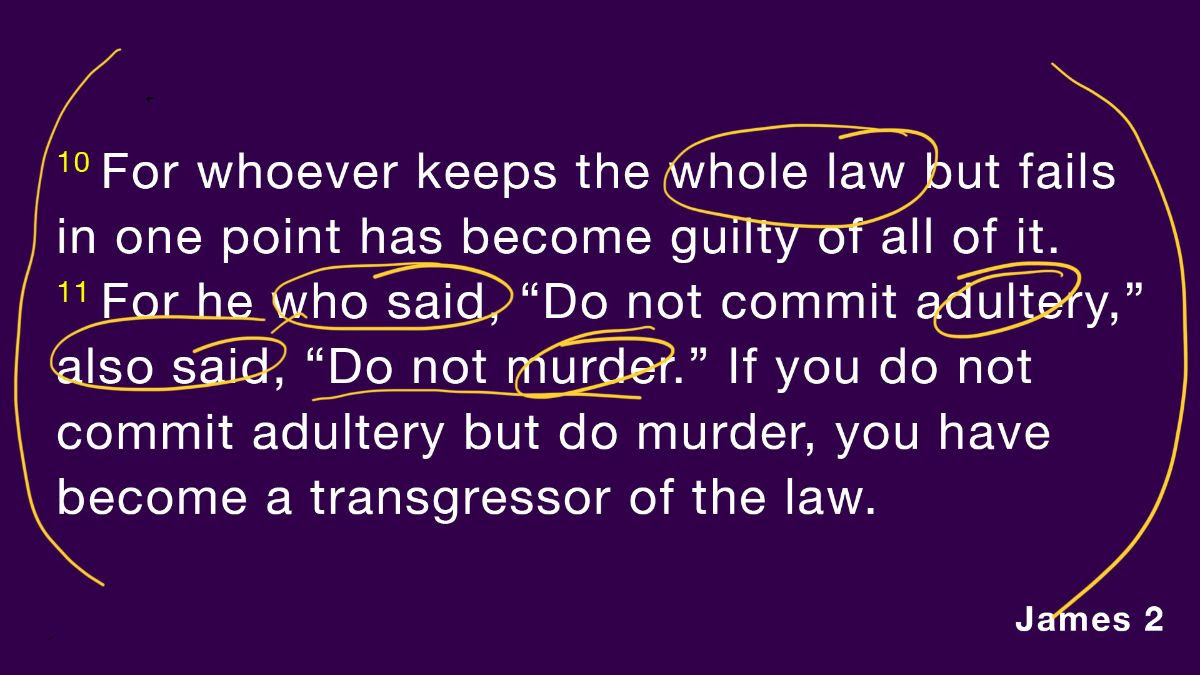
James is making a little parenthesis here. The law is one thing, an indivisible unit, the whole law. You can’t look at the law and say I’m good here and not there. It’s bad spiritual math. The whole law reflects the will of the Law-Giver. You can’t pick and choose or divide the law. And you can’t depersonalize the law. The same one who said don’t commit adultery is the one who said don’t murder. Don’t play that game where you’re good here and not there. He picks adultery and murder because they’re the most severe social sins and he’s going to accuse them of these in chapter 4.
James is saying there’s no way to wiggle out from under the law. James establishes the sinfulness of treating people in this way. If you’re playing games with the law, you don’t know the gospel.
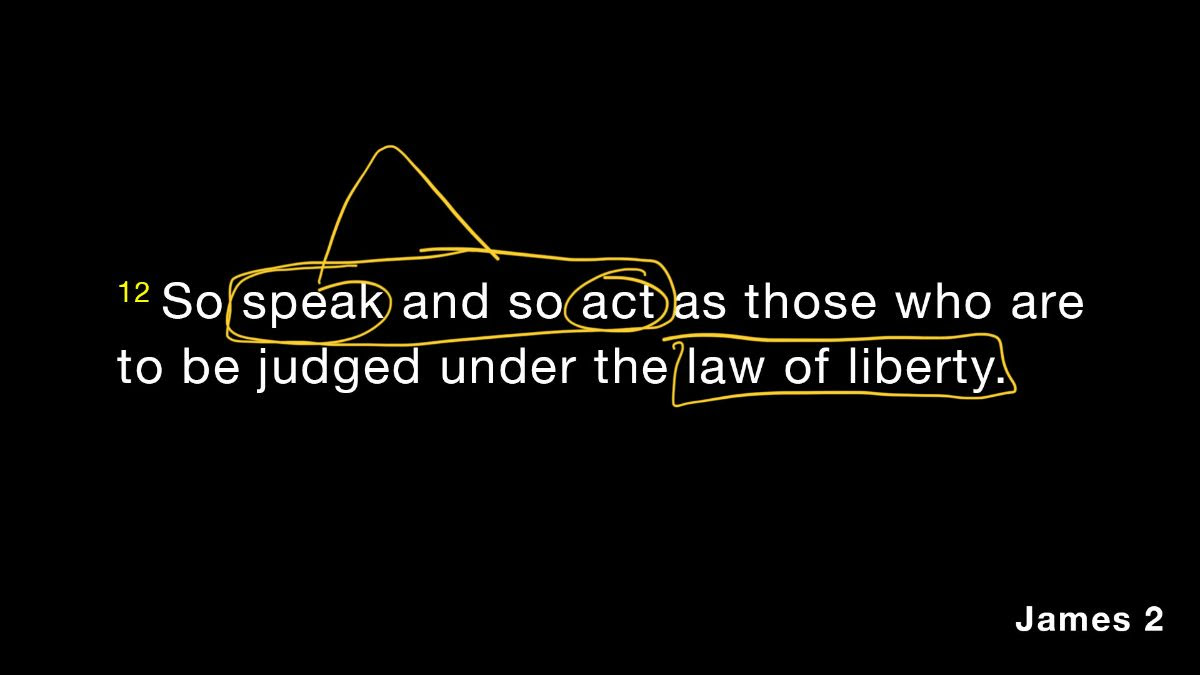
People who have the gospel aren’t pitting laws against each other. Christ sets you free from this. Let the gospel come into your life so that all your works and acts are loving. You can’t pick and choose when you’re loving. Just let the gospel come in and change your life so that you’re loving all the time.
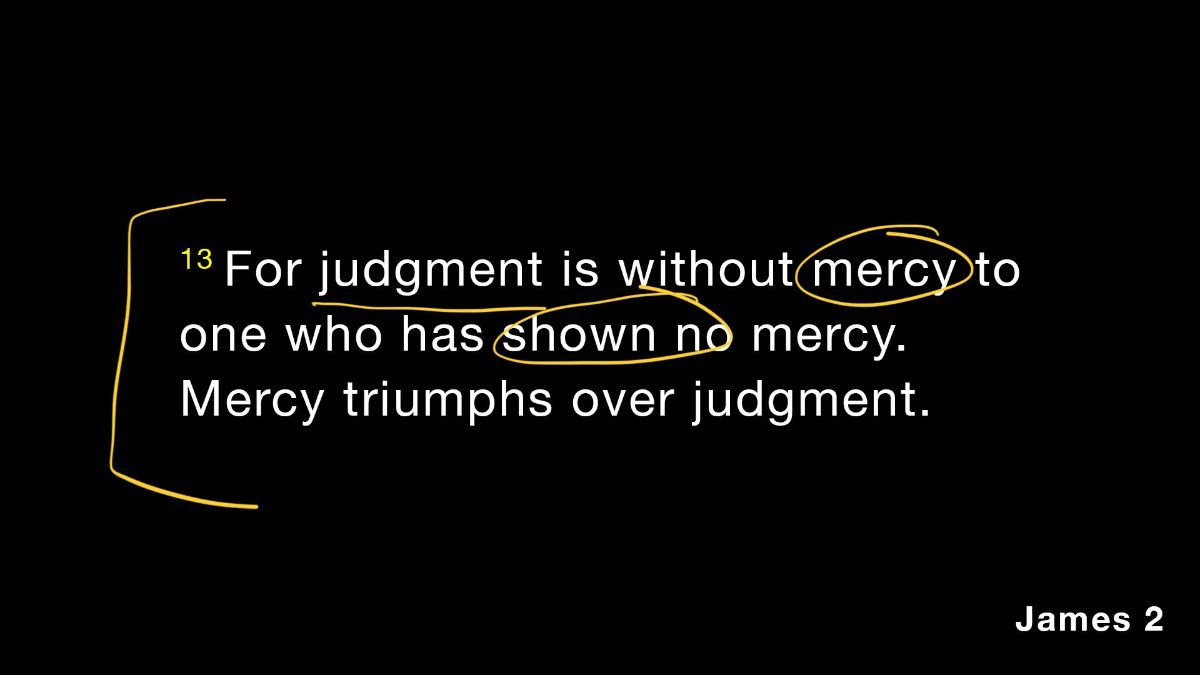
If you’re not a merciful person, you’re not getting mercy. How does mercy triumph over judgment? Mercy wins because it’s the quality of genuine faith. It’s the work, the action, that proves faith and a God of mercy. If a merciful God has come into your life you will be merciful. It’s not just the mercy I show, but the mercy I’ve been shown.
You don’t get to say I love everyone but…
The gospel affects your whole heart, not just a part of it.
We’re about to take communion and I want to say a few things before we do.
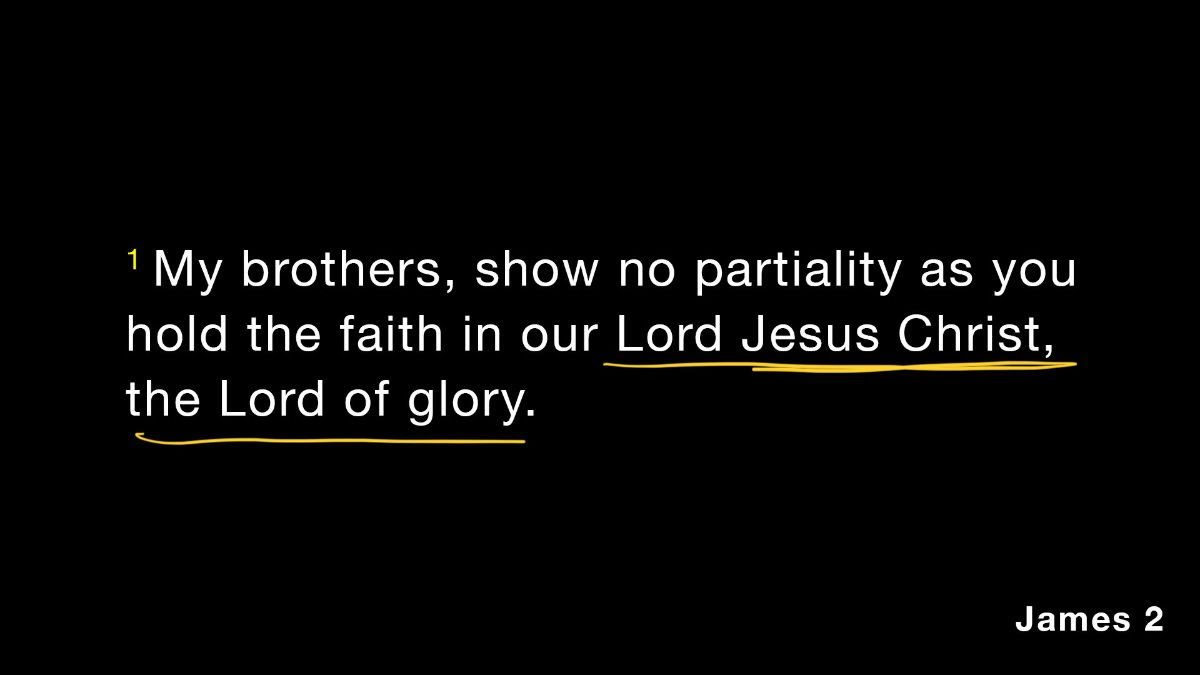
Almost no one attaches “the Lord of glory” to Jesus like James does here. The translation is a little awkward. The Lord of glory or the Lord over glory. It could just be the Lord Jesus Christ, the glory, the weighty one. Infinite worth, infinite value. James is saying Jesus is the real heavyweight, the one of real value. The rich guy will flaunt his glory, but Christ set his aside for us.
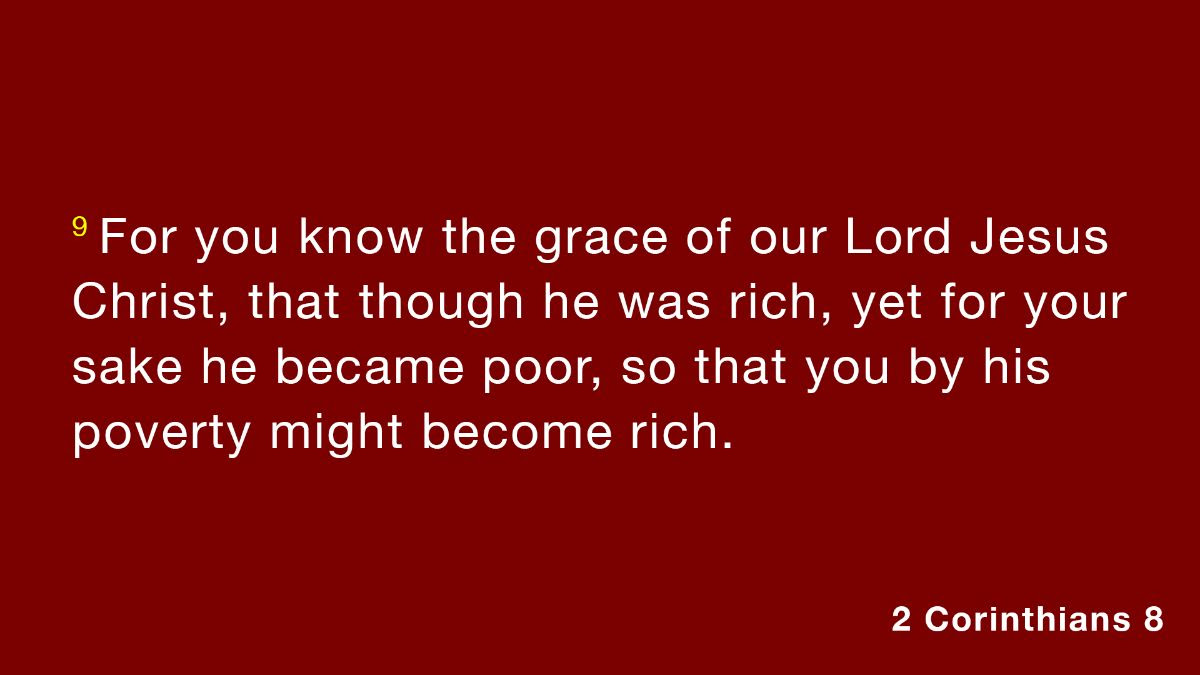
Before Christ, we were poor, shabby and smelly. Christ becomes revolting to us so that we can shine before God. That’s the gospel.
James is saying the one of infinite worth has come to die for you so that you gain infinite value. You’re infinitely valuable. That’s why your heart gets shattered and opened up to mercy. Your worth is already set. I can’t believe who I am in Christ. The gospel brings infinite worth.
Communion is designed to remind us of this very thing together.
Notes
- Read James 2:1-13. What are some ways we show partiality or favoritism in our society? What kinds of things do we choose to divide over or use to look down on others?
- What are some ways we divide ourselves or show favoritism within the church? Read 2 Corinthians 8:9. What are some ways we can follow Christ's example here and extend the mercy and grace we've been given by him? How can we make ourselves "poor" to lift up the state of someone else and love them as ourselves?
- What is the law of liberty in verse 12? What does it mean to speak and act as if we are under this law?
- How is showing mercy and being impartial linked in the passage?
Practice: Who comes to mind as someone you need to show more love or honor to? Where have you mistreated someone in the past by showing partiality? Ask God for a way to make it right this week. Reach out to someone you've put out of your mind or largely ignored and put faith into action by honoring them in some way.

